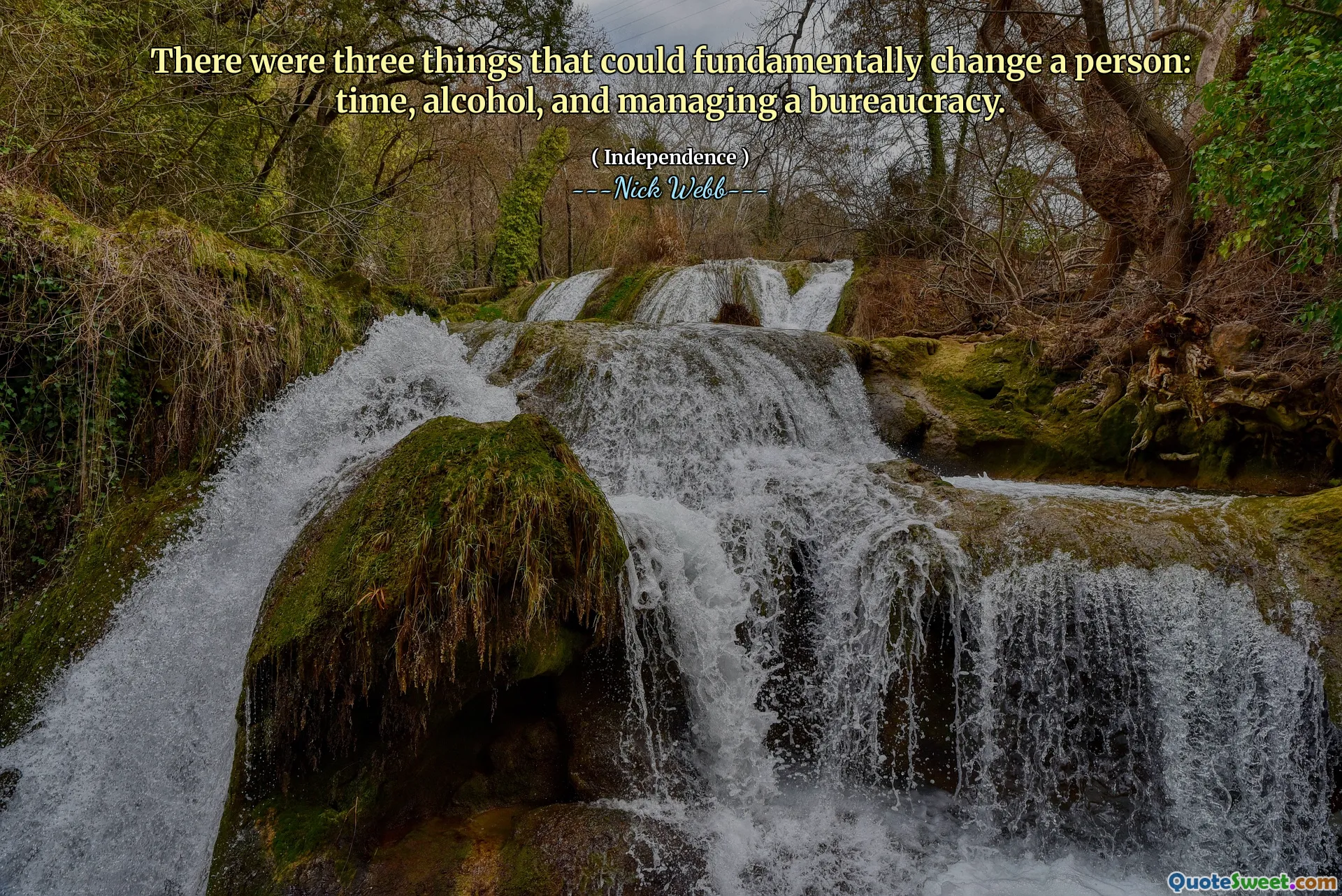
There were three things that could fundamentally change a person: time, alcohol, and managing a bureaucracy.
This quote encapsulates the profound and often tumultuous ways in which external forces can shape an individual’s character and trajectory. Time is arguably the most inevitable force—over it, no one has complete control, yet it holds the power to transform perspectives, priorities, and identities. As moments pass, people evolve through experiences, failures, and successes, often in unpredictable ways. Alcohol, on the other hand, represents the influence of temporary escapism or altered states, which can peel back layers of restraint and reveal one's true nature or hidden vulnerabilities. It’s a catalyst that can either loosen inhibitions or encourage destructive choices, profoundly impacting personal development. Managing a bureaucracy introduces another complex factor—systematic, often rigid structures that demand conformity, patience, and resilience. Navigating such systems can change a person by testing their integrity, patience, and adaptability, shaping their outlook and decision-making processes. The interplay of these three factors highlights how external conditions—be it the relentless march of time, intoxicating escapes, or the procedural labyrinth of bureaucracy—can fundamentally redefine who we are and how we perceive ourselves and others. It’s a reminder that personal transformation is often driven by forces outside direct control, emphasizing the importance of self-awareness and resilience in the face of such influences. When viewed together, these elements illustrate the dynamic, sometimes turbulent, journey of personal growth amid external pressures and influences.






